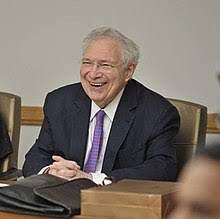I once had a section chief who was fond of telling me to “make it count twice.” If I was doing work for one part of my job, she suggested that I try to use it for something else. If I worked hard on a lecture for our students, maybe I could turn it into a paper or a workshop to give at a meeting. If research into a patient’s problem raised some interesting questions, maybe I could try to answer these questions as part of a research project. Although I found this advice a bit off-putting, I have to say that it has served me well in a career in academic medicine.
A few weeks ago, I was asked to speak on the occasion of Dr. Mark Siegler’s retirement. Mark was truly a giant in the field. He was behind one of the first sections of general internal medicine at an academic medical center, he developed the field of Clinical Medical Ethics, and was instrumental in the development of both the MacLean Center for Clinical Medical Ethics and the Bucksbaum Institute for Clinical Excellence.
There was a different speaker to address the various aspects of Mark’s career. I spoke about his clinical care. Proving that I am still following the advice to make it count twice, and because I feel strongly about recognizing my mentors, I am sharing my remarks here.
The most quoted article in the history of medical speaking has to be Francis Peabody’s speech “The Care of the Patient” that was published in JAMA in 1927.
The most quoted line from this most quoted essay is the final sentence: “One of the essential qualities of the clinician is interest in humanity, for the secret of the care of the patient is in caring for the patient.”
Dr. Mark Siegler embodies this statement more than any doctor I have ever met.
I have had the privilege of witnessing Mark’s clinical practice up close for the last 26 years. In January of 1998, as a new faculty member here, I attended with Mark on the general medicine service. It was another era. When you started, you co-attended your first time on service because maintaining clinical quality and culture was more important than productivity. We were also on for the entire month with one team of residents and students. I saw Mark’s deep commitment to, and concern for, each and every patient we admitted.
I was impressed not only with the care he delivered but also the humility with which he approached practice. He was already an icon, but he never hesitated to include me, a total newbie, in clinical decision making. He always recognized the uncertainty that exists in medicine in general, and in general medicine in particular. He made it clear that so often there are many, and sometimes no, right answers. He was perfectly happy to have his opinions debated and questioned for the benefit of the patients.
Over the years I covered his practice on the exceedingly rare occasions that he was trying to be unavailable. (I’ll add that he usually continued to be somewhat available during these occasions). I learned of the dedication he had to his own patients and how this was reciprocated. His commitment was legendary to the extent that even at an institution filled with committed clinicians, when someone would hear I was covering Mark they would say, “Eesh, that can’t be easy.” Covering Mark shaped my own practice. I learned that as we get older many of our patients become friends and many of our friends become patients. Mark taught me that this is not only OK but something to embrace.
When Mark retired from clinical practice last year, I took over the care of many of his patients. This could have been a curse, but it has turned out to be a privilege. It has been the final way Mark has taught me about clinical medicine. I’ve been able to see how he managed medical issues and the full breadth of people we get to care for here. He was also amazingly gracious in transferring his practice, somehow making people he had cared for over decades accept the transition.
I’ll finish quoting the paragraph that leads up to that most quoted sentence.
“The good physician knows his patients through and through, and his knowledge is bought dearly. Time, sympathy and understanding must be lavishly dispensed, but the reward is to be found in that personal bond which forms the greatest satisfaction of the practice of medicine. One of the essential qualities of the clinician is interest in humanity, for the secret of the care of the patient is in caring for the patient.”
Dr. Siegler, you have been a model clinician for all of us.




That was a lovely tribute. In the darkest hours of physician practice I often wonder how someone might make meaning of my career as a physician when it’s over. Anything nearing Dr Sieglers would be a roaring success.
Thanks for a lovely reminder of why I love medicine so much and that working with the next generation of physicians is so important and rewarding. This philosophy and belief is needed more than ever in American medicine and I hope everyone shares this article as it is impactful.